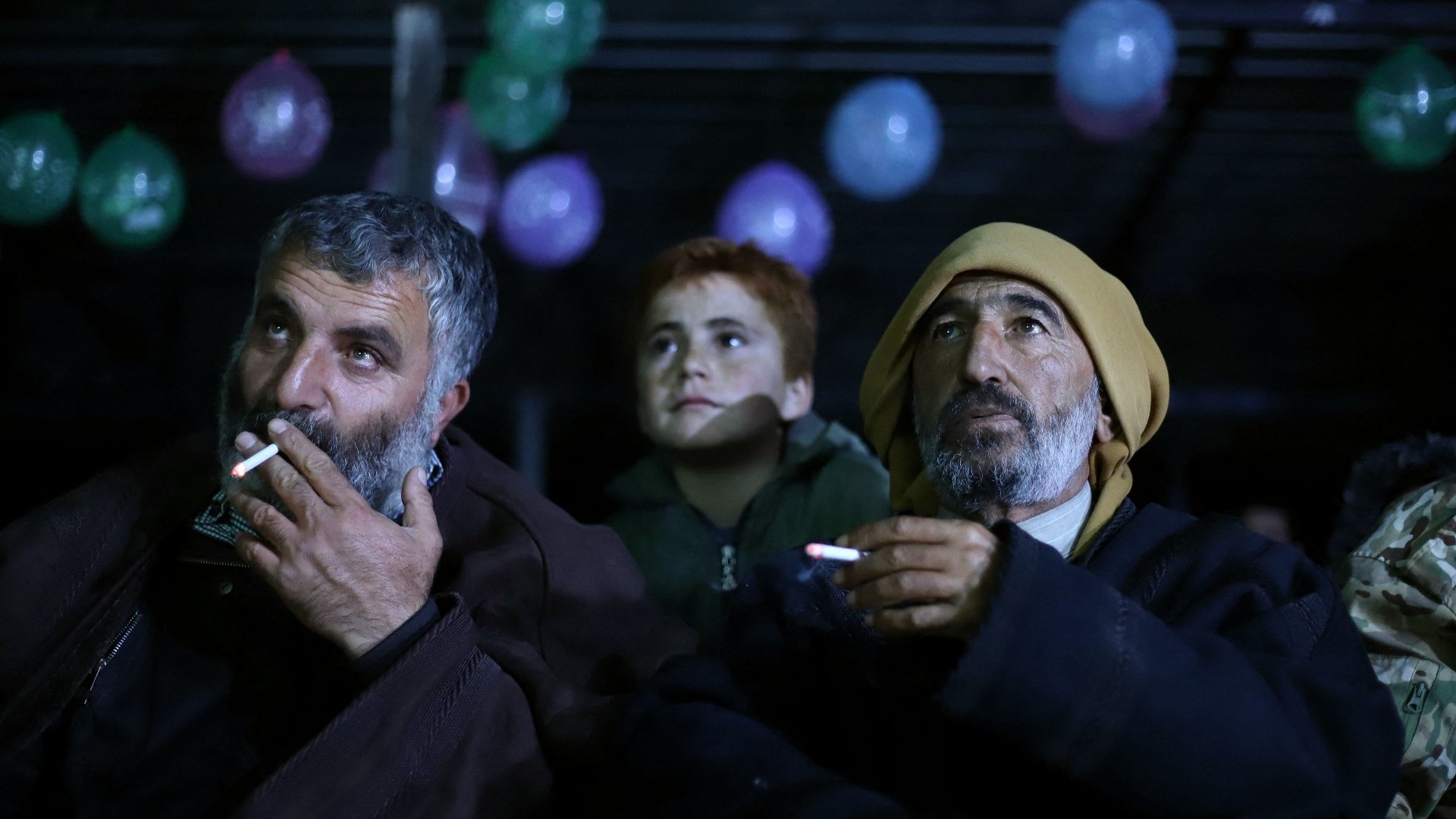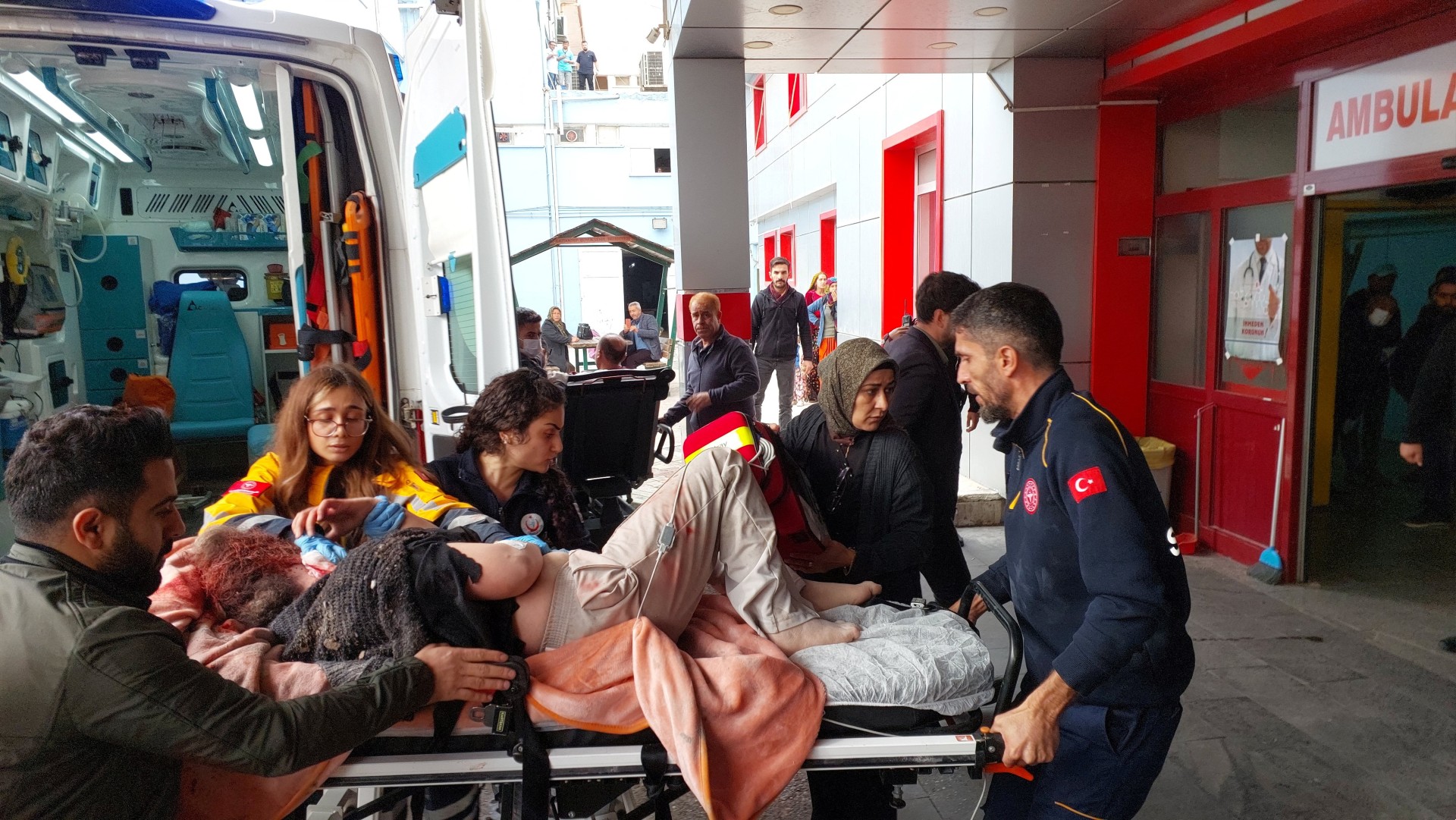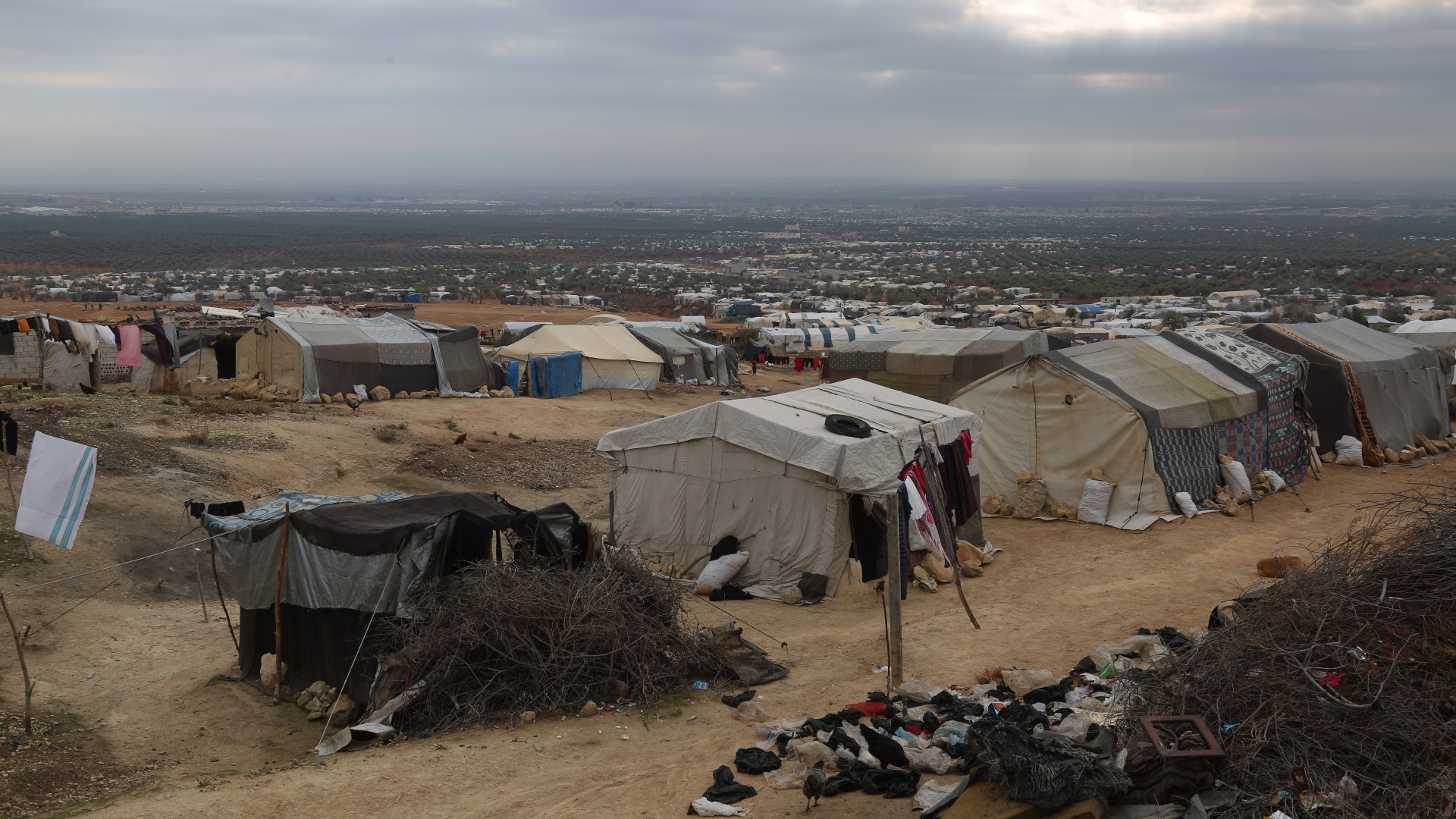Fear ramps up in Turkish-Syrian borderlands as major offensive looms

Karkamis, Turkey, and Azaz, Syria - From the door of a half-empty kebab restaurant in the southern Turkish town of Karkamis can be seen a gaping hole in the ground. It’s a reminder to the customers here, and all the town’s residents, of the danger they faced and continue to face.
One man walked through that door grumbling about his daughter, mixing Kurdish words with his Turkish ones in a heavily accented voice.
“She is still in fear, doesn’t leave her mother for a moment,” he said to the owner.
“This restaurant should have been full now. But people are afraid to go outside. The rocket, you know, landed over there,” he told Middle East Eye.
Ten days ago, rockets slammed into this community, killing three people, including a teacher and a child. It was part of escalating violence between Turkey and Syrian Kurdish groups, sparked by a bombing in Istanbul and likely to end in a full-scale Turkish ground offensive in northern Syria.
Stay informed with MEE's newsletters
Sign up to get the latest alerts, insights and analysis, starting with Turkey Unpacked
“If the rocket landed two minutes before, dozens of children would be dead,” the father said.
In Karkamis, people are frightened they will look up into the sky and see more rockets fired their way. Ankara says they have been fired by the Kurdish People’s Protection Units (YPG) militia, which Turkey considers an arm of the outlawed PKK armed group. The YPG denies any part in the 13 November Istanbul bombing that ratcheted up tensions in the first place.
Here in Turkey’s southern borderlands, exhaustion with the fallout of Syria’s decade-long war is reaching boiling point.
“Wallahi, we are fed up with this war,” the restaurant owner said. That exasperation is increasingly being translated into animosity towards Syrians themselves. When a Syrian beggar approached, the restaurateur angrily shouted “Yallah, yallah,” shooing him from his premises.
“Our soldiers are dying there [Syria], yet these insolents still ask for money!”
Karkamis is a small town near the Syrian border, situated on the opposite side of Syria’s Jarabulus, a town under Turkish control. Not much is stirring among its traditional, brown-walled homes. After the latest attack, the streets are vacant, and all schools and many shops remain firmly closed.
People are advised not to go outside or gather in squares. They are clearly rattled. There aren’t many sources of income for a tiny town like this, especially in Turkey’s current economic crisis. But being placed in a semi-lockdown by rocket fire is only making things worse.
'We are terrified'
At a pocket-sized barber shop nearby, a fierce debate was taking place.
“We are terrified. Most residents have gone to Gaziantep. But this bloody war never ends,” one customer complained, admiring his clean-shaven face in the mirror.
The barber bristled. He’s got a very clear idea of who is to blame: the Turkish government. Kurdish fighters can be seen jumping the border fence all the time, he claimed. Why couldn’t the border guards just beat them?
Another customer had been waiting his turn to speak. “You know, my father is confined to bed. One of the rockets hit the wall of our garden. It could have hit the house and killed us all,” he said.
“We can’t sleep at night. We are used to the sound of bullets and rockets but still terrified if more missiles hit us. Never trust the PKK!”
Turkish, Kurdish and Arabic all intermingle on the streets of Karkamis, with the latter being heard more and more in recent days: increasing numbers of Syrian refugees are crossing the border to visit relatives ahead of the likely military offensive.
'We can’t sleep at night. We are used to the sound of bullets and rockets but still terrified if more missiles hit us'
- Karkamis resident
“May God help us!” said Syrian resident Soleiman. “Most of my relatives fled to Azaz. Now they are hitting there, too.”
The day after the rocket attack on Karkamis, more fell on Azaz, a town 100km away in Syria, killing five civilians. The rockets were reportedly fired from Tal Rifaat, a strategic Kurdish-held enclave that looks likely to be the first target of Turkey’s offensive.
Like Karkamis, commerce has been hollowed out by the attack, spelling bad news for swathes of the Aleppo countryside that uses it as a hub.
Azaz merchants are now living in fear, one called Khaled al-Ahmed told MEE.
“Now, we are facing stagnation. The real estate and automobile sectors were also affected by the latest bombing,” he said.
Maha Afadli, an internally displaced Syrian, once felt she’d finally found safety in Azaz. But now she’s worried the war will reach her there again.
“I am from Aleppo, but moved to Tal Rifaat, was displaced by the PYD there, and settled in Azaz in 2016,” she said, referring to the YPG’s political arm. “I want all the displaced to return to their lands,” she said, despairing that international powers haven’t managed to wage peace in Syria.
'Nylon tents do not protect us'
Things are no less fraught in the displacement camps that stretch along the Syrian side of the Turkish border. In the Jabal Bursaya camp near the Bab al-Salama border crossing, Khalaf al-Jassem recalls recent attacks with a grimace.
“My family and I have been looking for a safe place to live. We are terrified by the recent bombings. The children were crying, and the women were screaming in terror, because this place is considered safe,” he said.
The United Nations estimates that 6.5 million Syrians have been internally displaced since the beginning of the civil war in 2011. Most of them live in camps.
Jassem is worried for his family. “Nylon tents are very thin and do not protect us from a shell or a missile. If one of them hits our tent, we’ll be certainly dead,” he said, adding they have no place to go - Azaz was the last safe haven.
Cecelia al-Taweel’s story is no different. Her journey searching for a safe place began in 2012 when she left her hometown of Homs for Damascus. She then fled to Daraa, then Quneitra in 2018, and ended up in Azaz.
She believes the Kurdish shelling attacks will only increase if Turkey launches its offensive.
That tension is felt a handful of kilometres over the border in Oncupinar, in Turkey's Kilis province, as well. The border town was hit by Kurdish shelling on 21 November, wounding eight police officers.
With troops building up, military vehicles frequently ferry men and equipment from place to place. Turkey is expected to attack Tal Rifaat from Oncupinar alongside 4,000 allied Syrian rebels, if negotiations with Damascus’ ally Russia fail.
Ankara has been trying to get Russia to convince Syrian government forces and Kurdish fighters to pull out of Tal Rifaat to avoid bloodshed. That eventuality looks more unlikely by the day. The sound of shelling and rockets are heard all the time.
“People are more terrified than ever,” said an NGO worker who frequently visits the camps in Syria’s north. “People are aware that Turkey doesn’t want more refugees. And there is no safer place in Syria [than Azaz],” they added.
Middle East Eye delivers independent and unrivalled coverage and analysis of the Middle East, North Africa and beyond. To learn more about republishing this content and the associated fees, please fill out this form. More about MEE can be found here.






